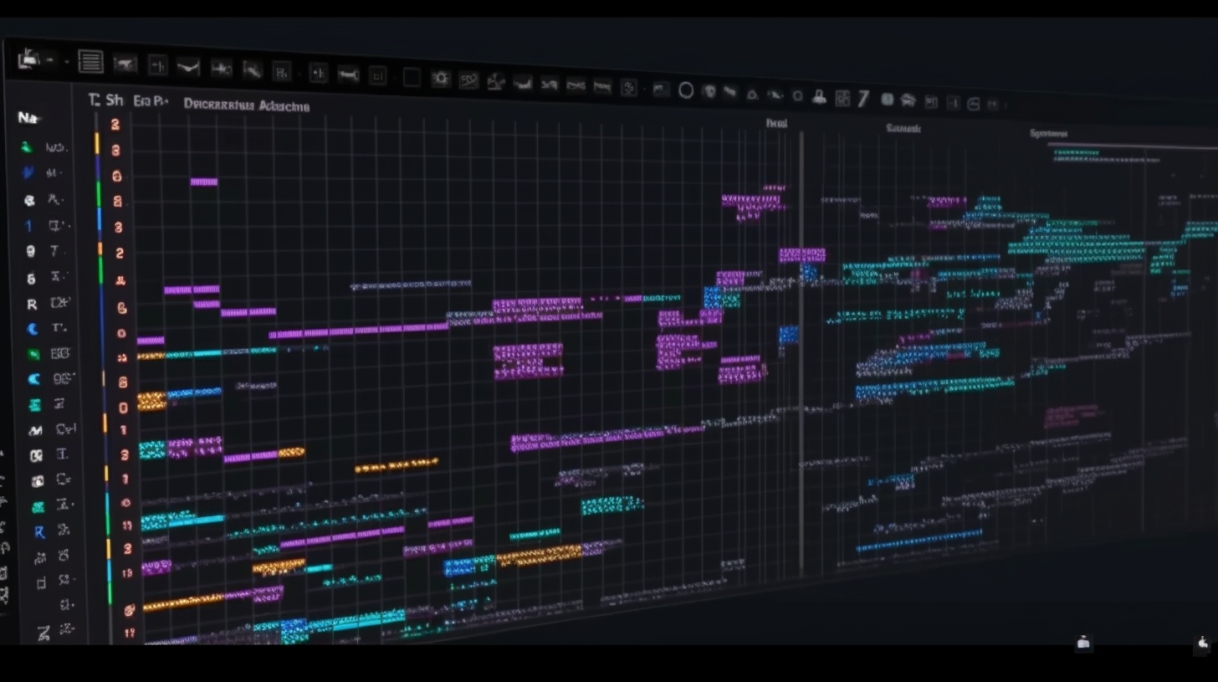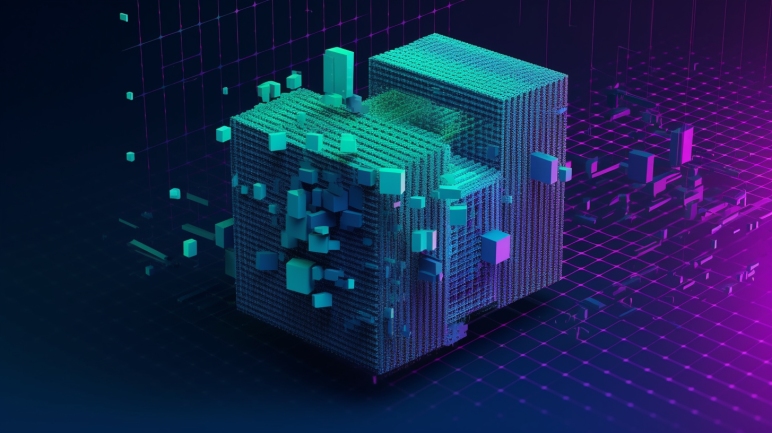Programming is the backbone of the digital world, enabling us to create everything from websites and mobile apps to artificial intelligence and data analysis.
Learning to program opens doors to a wide range of exciting and rewarding career paths, allowing you to build innovative solutions and shape the future of technology.
Whether you’re a complete beginner or looking to expand your skillset, mastering programming is an investment that can pay off for years to come.
With so many programming courses available online, finding the one that best fits your needs and learning style can feel overwhelming.
You’re searching for a course that not only teaches the fundamentals but also provides practical experience, engaging projects, and valuable career guidance.
You want to ensure you’re investing your time and effort in a program that will equip you with the skills and knowledge to succeed in the competitive world of programming.
For the best programming course overall on Udacity, we recommend the Introduction to Programming Nanodegree.
This comprehensive program provides a solid foundation in the basics of programming, covering popular languages like Python and JavaScript, and essential tools like Git and GitHub.
Through hands-on projects and engaging lessons, you’ll learn to build your own web pages, games, and even a shopping cart application.
The course also includes a Career Services section to help you launch your programming career with confidence.
While the Introduction to Programming Nanodegree is our top pick, Udacity offers a wide range of specialized programming courses that cater to different interests and career goals.
Whether you’re interested in AI, data science, web development, or other exciting fields, keep reading to discover more options and find the perfect programming course for your journey.
Introduction to Programming Nanodegree
This Udacity Nanodegree is a great starting point if you’re new to programming and want to learn Python.
You’ll gain a solid foundation in the basics of programming, which you can apply to various tasks like building apps, websites, or analyzing data.
The Nanodegree kicks off with web development, teaching you HTML and CSS to build a simple web page.
Think of it as learning the alphabet of websites!
You’ll then move on to Python, using a tool called VS Code.
Imagine creating a program that controls a turtle on your screen - that’s the kind of fun, hands-on learning you can expect!
You’ll learn about functions, strings, lists, and even build your own adventure game.
The course then dives deeper into Python.
You’ll work with files, learn about web APIs, and even build a simple Rock, Paper, Scissors game using your newfound programming skills.
You’ll then explore JavaScript, another popular language for adding interactivity to websites.
You’ll learn about data types, conditionals, loops, and functions – all essential building blocks for creating dynamic web experiences.
The final project involves building a shopping cart, a practical application of JavaScript principles.
Finally, you’ll learn about important tools like Git and GitHub, essential for collaborating with other programmers on projects.
The Nanodegree also includes a Career Services section to help you craft a standout LinkedIn profile and showcase your coding projects on GitHub, giving you a head start in your programming career.
Java Programming Nanodegree
This Nanodegree program elevates your Java abilities and equips you with the essential skills used by Java developers worldwide.
You begin by mastering the fundamentals of Java programming, including classes, objects, and object-oriented programming.
You build a solid foundation by working with common data types, generics, and collections, culminating in the creation of a Hotel Reservation application.
You then delve into advanced Java programming techniques such as functional programming, file and I/O operations, and design patterns.
You gain a thorough understanding of concurrent programming, applying your knowledge to build a practical Parallel Web Crawler.
This project provides valuable experience in handling complex, real-world scenarios.
The program then guides you through the intricacies of deploying Java applications, from running them using industry-standard tools like Maven to understanding the nuances of Java modules.
You learn to write effective unit tests, employing techniques like test doubles and mocking to ensure your code is robust and reliable.
Importantly, you gain practical experience with UdaSecurity, learning how to secure your Java applications.
Throughout the program, instructors with experience at renowned companies like Honeywell and Boeing share their expertise, providing real-world insights and best practices.
You emerge from this Nanodegree program with the confidence and skills to tackle complex Java programming challenges.
AI Programming with Python Nanodegree
The program eases you in with Python fundamentals, covering data types, operators, and control flow, before introducing you to powerful libraries like NumPy, Pandas, and Matplotlib for data manipulation and visualization.
You’ll then build a strong foundation in linear algebra—essential for understanding neural networks—and delve into the fascinating world of AI.
The curriculum guides you through building and training your own neural networks using PyTorch, a leading machine learning framework.
You’ll even create your own image classifier, a testament to your growing expertise.
Beyond the basics, you’ll explore advanced concepts like Transformer Neural Networks, commonly used in natural language processing, and gain practical skills in machine learning techniques like linear regression, logistic regression, decision trees, and support vector machines.
The program doesn’t just equip you with technical skills; it also prepares you for a successful AI career with guidance on optimizing your LinkedIn profile and GitHub account.
Programming for Data Science with Python Nanodegree
This Nanodegree equips you with the programming skills needed to excel in data science.
You will start by mastering SQL, the language used to communicate with databases.
You will learn how to extract meaningful information from databases, clean and prepare data for analysis, and optimize queries for better performance.
Then, you’ll conquer the command line, a powerful tool for interacting with your computer.
You will learn how to navigate files and directories, execute commands, and automate tasks, which are essential skills for efficiently handling large datasets.
Next, you’ll delve into Python, the go-to language for data analysis.
Starting with the basics like data types and control flow, you’ll advance to using powerful libraries like NumPy and Pandas.
These libraries will enable you to efficiently manipulate, analyze, and visualize data, preparing you for real-world data science projects.
You will also master Git and GitHub, essential tools for version control and collaborative coding.
You’ll learn how to track changes to your code, revert to previous versions if needed, and collaborate seamlessly with others on projects.
Finally, you’ll explore the world of data visualization with Tableau, a leading data visualization software.
You will learn how to transform data into insightful and visually appealing charts and dashboards.
This will allow you to communicate your findings effectively to both technical and non-technical audiences.
C++ Nanodegree
The Udacity C++ Nanodegree program might be what you need to master it.
This three-month program, taught by industry pros like David Silver from Kodiak (he works on self-driving trucks!) and Stephen Welch from Udacity, doesn’t just throw facts at you – you’ll build real-world projects.
Think you’ll just be stuck with theory?
You’ll dive right into building an OpenStreetMap route planner as you learn the C++ basics.
As you move into object-oriented programming (OOP), you’ll create a system monitor, getting your hands dirty with concepts like inheritance and polymorphism.
Then, you’ll tackle memory management – a crucial part of C++ that can make or break your code’s efficiency.
You’ll learn how to avoid memory leaks and write programs that run smoothly, even with limited resources.
And because today’s applications often need to do multiple things at once, you’ll master concurrency, building a traffic simulation that handles multiple cars moving simultaneously.
The program doesn’t just leave you hanging once you’ve learned the technical stuff.
You’ll complete a capstone project that showcases your skills to potential employers.
You even get career services to help optimize your LinkedIn and GitHub profiles so you can land your dream job in fields like robotics, video games, or even self-driving cars!
Programming for Data Science with R Nanodegree
You begin with SQL, the industry standard for interacting with databases, using it to answer real-world business problems.
This includes mastering essential commands, combining data from various tables using joins, and summarizing information through aggregations.
You even explore advanced techniques like subqueries, temporary tables, data cleaning, and performance tuning.
Next, you delve into the world of R, a popular language for data analysis.
You learn the basics, from data types, functions, loops, and conditional statements, to reading and manipulating data in R. You also develop skills in creating visualizations to represent trends graphically and perform statistical analysis, including concepts like hypothesis testing and regression analysis.
This program doesn’t just focus on coding; it also teaches you how to use Git and GitHub, crucial tools for version control.
You learn to manage different versions of your programs, collaborate seamlessly with others, create repositories, track changes, and contribute to open-source projects.
The program concludes with career services, a valuable resource that guides you through industry research, helps you enhance your LinkedIn profile, and teaches you how to optimize your GitHub profile to attract potential employers.
Intermediate Python Nanodegree
This Udacity Nanodegree program teaches you how to use Python to build sophisticated applications.
You begin with “Advanced Python Techniques” where you will explore crucial concepts like object-oriented programming and file input/output.
You will practice these new skills while building a project to explore near-Earth objects.
Next, you’ll dive into the world of “Large Python Codebases with Libraries,” learning how to use libraries and platforms like GitHub to build impressive applications.
Your capstone project in this section is building a “Motivational Meme Generator,” showcasing your ability to apply Python creatively.
To round out your skillset, you will participate in a “Shell Workshop” to master navigating your computer’s operating system.
Finally, you’ll prepare for the job market in the “Career Services” section, where you’ll get expert advice on optimizing your LinkedIn and GitHub profiles.
Through this program, you gain a comprehensive understanding of Python, learning from experts like Sam Redmond, creator of the renowned “Python Programming Language” course at Stanford, and Gabe Ruttner, a specialist in cloud-based machine learning.
This Nanodegree equips you with the skills and portfolio needed to launch a successful career in fields like data science, web development, and fintech.
Agile Software Developer Nanodegree
This Agile Software Developer Nanodegree teaches you the best ways to use Agile frameworks to build amazing products quickly and efficiently.
You start with the basics of Agile and discover why it’s so popular in today’s fast-paced tech world.
You then explore how to build and grow strong Agile teams, learning from experts like Vincent High, who has years of experience as an Agile coach.
Next, you’ll discover how to deliver real value through effective Agile planning and prioritization.
You’ll become skilled in Agile planning, prioritizing tasks, accurately scoping projects, planning releases and iterations, and developing a Minimum Viable Product (MVP).
You’ll dive into the world of DevSecOps, a crucial set of practices for building secure and reliable software.
The program then guides you through tracking progress, mastering communication, and understanding organizational agility.
You learn how to measure your progress and the impact of your work using Agile metrics.
You also learn how to identify potential risks and communicate clearly within an Agile team, a skill highly valued by employers.
Finally, you’ll learn how to use this experience to boost your career by improving your LinkedIn profile to attract potential employers seeking skilled Agile Software Developers.
Intermediate JavaScript Nanodegree
This Udacity Nanodegree program equips you with the advanced JavaScript skills needed for web development, server-side applications, and even desktop development.
You’ll begin with Object-Oriented JavaScript, mastering objects, classes, and important design patterns like factory, singleton, and observer.
You’ll solidify your understanding by building a “Dinosaurs” project.
Next, you’ll explore Functional Programming, learning a new way of thinking about code with immutability and pure functions.
You’ll master techniques like higher-order functions and recursion, applying your skills to the “Mars Dashboard” project.
You’ll then tackle Asynchronous Programming, a crucial skill for modern web applications.
You’ll learn to manage asynchronous code effectively using callbacks, promises, and async/await, testing your knowledge with the “UdaciRacer Simulator.”
The program goes beyond teaching code by offering a Career Services module.
You’ll learn how to optimize your LinkedIn profile and showcase your projects on GitHub, preparing you to connect with potential employers.
This Nanodegree empowers you with the practical skills and knowledge to confidently build complex applications and pursue a successful career as a JavaScript developer.
Also check our post on the best Programming courses on Coursera.









